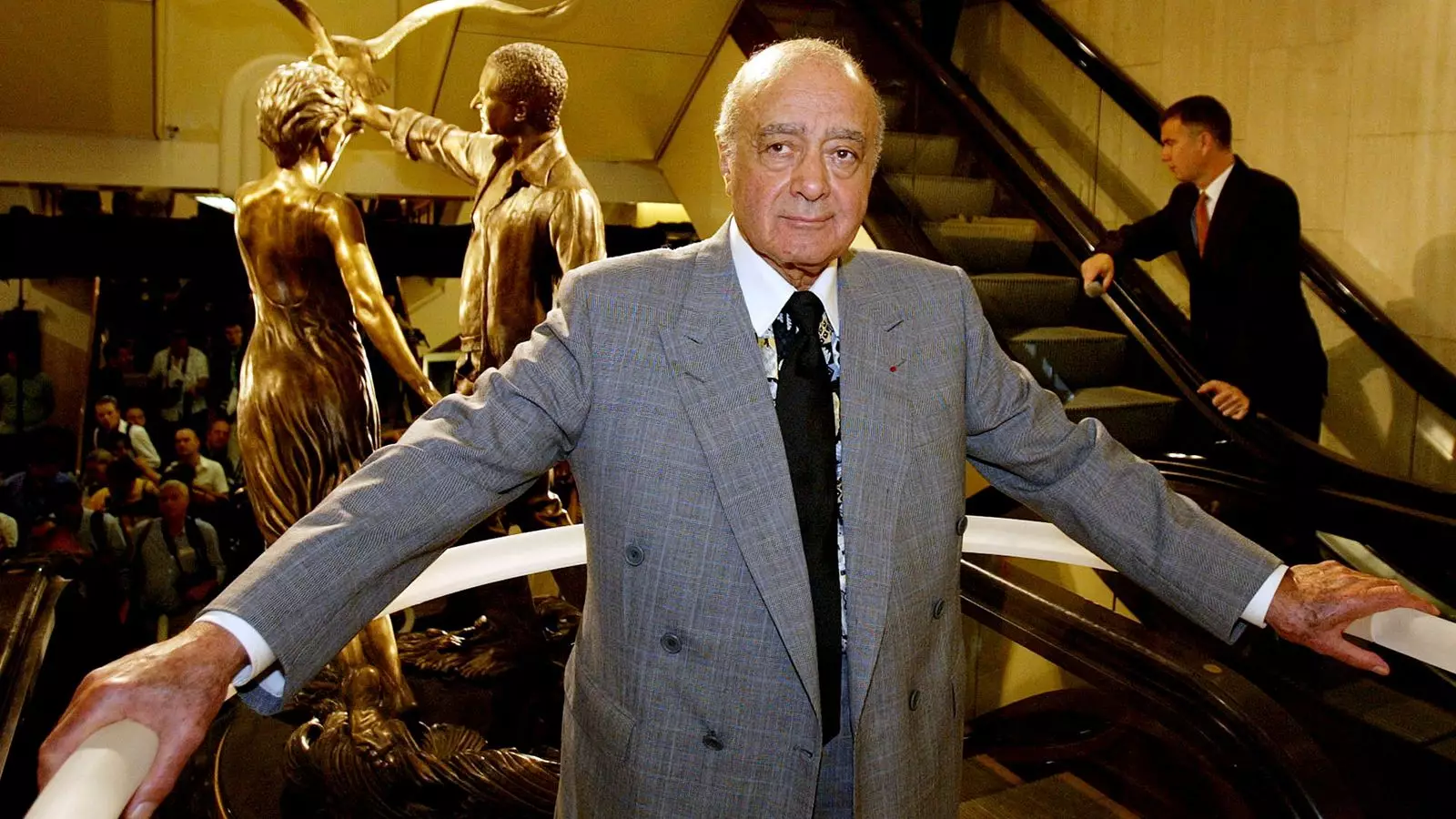The recent allegations against Mohamed Al Fayed, the former owner of Harrods, have resurfaced a harrowing narrative of sexual abuse that casts a dark shadow over his legacy. With claims suggesting he was a “predator” who preyed on vulnerable young women, the voices of his alleged victims resonate in a chilling chorus demanding justice. Central to this distressing account is the perspective of Natacha, a 19-year-old who described her fears and the trauma she endured while working in the opulent surroundings of one of the world’s most famous department stores. Al Fayed’s alleged actions starkly parallel other high-profile cases of abuse, prompting a necessary discussion around systemic failures in safeguarding employees.
At a recent press conference, barrister Dean Armstrong KC articulated the nature of the allegations against Al Fayed, highlighting the stark similarities to infamous figures like Jimmy Savile, Jeffrey Epstein, and Harvey Weinstein. Armstrong represents over 20 female former employees who have stepped forward with significant allegations, encompassing a wide array of abuse, exacerbated by a corporate environment that failed to protect them. The statement that these women—some as young as 15—were specifically chosen for their roles only to be subjected to invasive medical examinations truly underscores the systematic exploitation at play.
The legal claims not only reveal individual testimonies of horror but also indicate a broader web of complicity. The allegations span across various locations from London to Paris, suggesting that Harrods, and potentially other associated institutions, fostered an environment where abuse could occur unchecked. The stark reality of physical violence and sexual assault among employees is an essential narrative that speaks to the need for accountability at corporate levels.
The criticisms directed at Harrods extend beyond mere accusations against Al Fayed; they implicate the institution as a whole in a failure to ensure a safe working environment. Armstrong’s statement on the “abject failure of corporate responsibility” highlights a critical dimension of this case: the obligation of businesses to protect their employees. Harrods’ response, where they expressed being “utterly appalled” at the allegations, signals an uncomfortable confrontation with their historical negligence.
Although Al Fayed has passed away, the burden of accountability does not simply vanish with him. By setting up a dedicated page for former employees to report allegations, Harrods aims to invoke a sense of justice, but there remains skepticism about whether any genuine changes will occur or if this is merely a performative act of remorse.
The narrative surrounding Al Fayed has been met with growing public scrutiny, notably in light of the new allegations coming to light in 2023. The Metropolitan Police have acknowledged the numerous accusations that span several years, yet previous investigations did not yield any charges. This raises critical questions about the effectiveness of law enforcement in addressing such abuses of power. For many, it reveals a broader societal problem where victims are often left unheard or unsupported by the very systems meant to protect them.
The characterization of Al Fayed as a “monster enabled by a system” underlines not only the individual actions but also the institutional failures that allow such behavior to fester. The lack of substantial repercussions clearly indicates deeper societal and corporate issues regarding the treatment of women, especially within environments where power dynamics are grossly imbalanced.
The unfolding saga surrounding Mohamed Al Fayed and the allegations of abuse serves as a clarion call for reform within corporate governance and protocols for protecting employees. As Harrods strives to reconstruct its image as a safer workplace, the lingering question remains: how can organizations balance profit and responsibility without compromising the safety and dignity of their employees?
In the wake of these revelations, the cultural conversation surrounding sexual abuse within powerful institutions must evolve. It is essential not only for those directly affected to receive justice but also for future generations of employees to be safeguarded against potential abuses. The narrative surrounding Al Fayed must transcend his individual doings and challenge institutions to actively foster environments devoid of discrimination and exploitation. The true measure of progress will lie in the tangible changes implemented within such organizations in response to the cries for justice from the past. The legacy of Al Fayed is now a powerful reminder of the urgent need for vigilance against abuse, accountability, and systemic change.


Leave a Reply